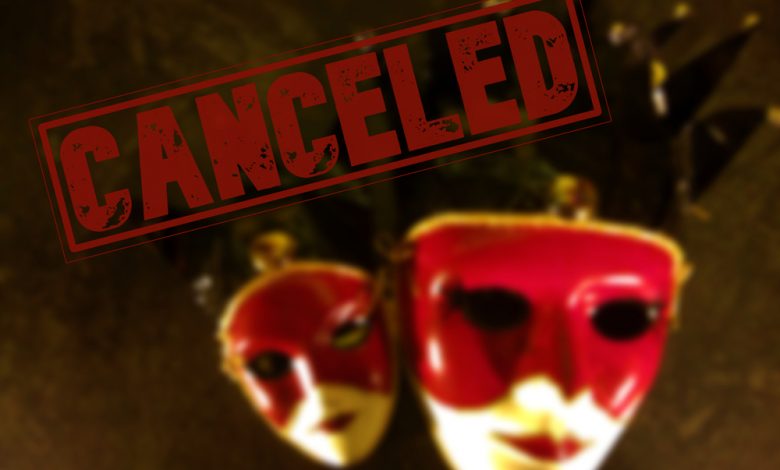
If you’ve spent any time on Twitter, you’ve likely seen people calling to “cancel” a particular brand, celebrity, movie, or TV show. Ellen DeGeneres and J.J Rowling are two famous recent examples of stars the internet has deemed “canceled” and “over” by the continued push of “Cancel Culture.”
J.K Rowling has been condemned for comments that were seen as anti-trans, but she isn’t the only one Twitter has tried to cancel and do-away with. Users also denounced singer-rapper Doja Cat over racist behavior in chat rooms and Lea Michele of Glee fame over accusations that she mistreated co-stars. Ellen DeGeneres came under fire because of allegations of how she treats people backstage. People can fall victim to cancel culture for all sorts of reasons. Jodie Comer of Killing Eve was “canceled” for having a boyfriend who may or may not be a conservative.
So – what does it take to have Twitter declare you socially dead, and will we ever cancel cancel culture?
Table of Contents
What is Cancel Culture?
Cancel Culture refers to the phenomenon of “canceling” people, brands, shows, and movies due to problematic/offensive remarks, ideologies, and branding. The idea isn’t as new as it might seem, but it has exploded in 2020.
Dr. Jill McCorkel, a criminology and sociology professor at Villanova University, says that elements of cancel culture can be seen throughout human history. Societies have long punished people for behaving outside of the “norm.” She says that cancel culture is just the latest iteration of this trend in history.
Cancel culture is, in a way, an extension of social processors that can be seen in banishment, exiled, and similar punishments from the past. The ideals all have one thing in common – they reinforce the “accepted” viewpoints and norms.
The trend has gained a lot of momentum in recent years, with social media users putting just about everyone and everything under the microscope of political correctness. Here’s a look at the history of cancel culture, how we got where we are, and what makes it so problematic.
“Twitter, do your thing.”
How many times have you heard the phrase “Twitter, do your thing”? The request has become more popular as cancel culture has exploded. It refers to asking people to put something under the microscope to discover more about a person or situation. Twitter users have investigation skills to rival the FBI and are experts at digging up dirt and secrets, not to mention identifying people. While this has been used for good in the past, it is now the heart of cancel culture.
Users are finding the identities of people expressing racist views and comments in viral videos. One of the most recent victims was Amy Cooper, a 41-year-old woman, also known as “Central Park Karen.” The video in question shows Cooper calling the police on a black man, identified as 57-year-old Christian Cooper, for asking her to put a leash on her dog.
Cooper called the authorities and claimed that “an African-American man is threatening my life” while seemingly strangling the dog. The video went viral and gathered millions of views. Cooper was identified and fired from her job at an investment firm, forced to surrender her dog, and charged with falsely reporting an incident in the third-degree. The viral clip also triggered a slew of new hate crime legislation, including the aptly-named “CAREN Act” that criminalizes calling the police on someone based on their ethnicity.
Celebrities have gotten in on the action – both calling for cancellation and being canceled.
Actress and writer Skai Jackson, 18, recently took to Twitter to expose a high-school student featured screaming racial slurs in a viral video. Jackson identified the student by name, Instagram account, and prospective college.stagram account, and prospective college.
Her followers used the thread as a chance to expose other people for making offensive posts, creating a chain that led to Twitter calling for canceling racists. Singer-songwriter Lana Del Ray came under criticism for making comments about other female recording artists, many of whom were people of color.
As McCorkel explains, canceling someone – even doing it online – creates a feeling of solidarity with others. It reinforces the idea of togetherness between people involved. It stresses the idea that “we” are a group, and “we” don’t tolerate people behaving like this.
Cancel culture reinforces a sense of solidarity that many people call for in a time of political division. Being a part of a group like this is psychologically intoxicating. People love feeling like they are part of something bigger than themselves, which is what the cancel culture movement represents.
Twitter accounts such as RacistOTW and YesYoureRacist have emerged as public racism watchdogs. These accounts have made it their duty to scrutinize everyone from public figures and ordinary people to shed light on otherwise ignored incidents.
Apologizing Rebranding After Cancellation
Cancel culture has affected more than just individuals. Brands and companies have fallen victim to the calls for cancellation. A significant example of this is Aunt Jemimah, who gave their branding a makeover after 130 years following backlash over racist stereotypes.
Another example is the vegan recipe creator “Thug Kitchen” who rebranded to “Bad Manners” after backlash. Cream of Wheat and Eskimo Pies soon followed suit and rebranded to avoid cancellation.
Even sports teams are getting in on the action. The Washingon Redskins are finally looking into new branding after years of resistance to the idea. The Cleveland Indians are considering making changes of their own.
With cancel culture comes people apologizing for the actions that led to the cancellation. The IsOverParty hashtag refers to cancel culture and was recently used as a call to cancel Jimmy Fallon after an old video of him imitating Chris Rock while wearing blackface resurfaced. While Twitter was quick to seize upon #JimmyFallonIsOver, other users took to defending Fallon and condemning Cancel Culture.
Users defended Fallon by arguing that he did it over 20 years ago and was likely not responsible for the action, which was likely imposed on him by someone higher up. For his part, Fallon apologized for the video. Fallon called wearing blackface a “terrible decision” and said he was “very sorry,” and thanked his fans for holding him responsible for his past actions.
The Problem With Cancel Culture
One of the biggest problems with cancel culture is that people are quick to cancel, but never so quick to forgive. Many of these cancellers also seem to refuse to believe people can change or learn from their mistakes. Jimmy Fallon is an excellent example. Fallon is hardly the man he was 20 years ago, but some people still called for him to lose everything based on one mistake from so long ago.
Another issue is that cancel culture is creating new problems for celebrities, movies, and TV shows. Youtubers Jenna Marbles and Shane Dawson recently came under fire for using blackface years ago on their YouTube channels. Jenna Marbles, real name Jenna Mourey, even quit following the abuse she received.
Cancel culture ignores the idea that people can grow and change and become better people. It ignores the idea that people can pay for their mistakes, and insists that we should all be perfect beings who have never – and will never – make a mistake. The problem is that humans aren’t infallible. Who hasn’t made a mistake in the past?
Problematic behavior shouldn’t be excused, but to “cancel” someone and declare them socially dead for mistakes in their past is ridiculous.
Many also see the movement as censoring free speech and acting as “thought police” telling people what they can and can’t say or do. Cancel culture shows a blatant intolerance of opposing views and a tool for people to shame and ostracize others and dissolve complex issues into moral certainties when they aren’t that black and white.
Being too rigid with political discourse is dangerous because you can’t have a democracy without engaging those with different views in meaningful ways. There is a stark difference between canceling behavior that everyone agrees is bad – such as exposing sexual harassment through the #MeToo movement – and canceling an individual without any discourse.
People have to be able to come together and speak their minds about opposing viewpoints to create optimal solutions. Such discourse is impossible when people lock themselves into an “us vs. them” mentality, which is what cancel culture embodies.





I love this so much!! Cancel Culture is so stupid. It's a form of Communism apparently. It should be renamed Cancer Culture. It scares me so much that Cancel Culture has become a thing and that so many people believe in it. It's so hypocritical also.
Why individuals today are wanting to "cancel" their heritage, the history of their country, the norms of the society that they live in (irrespective of country) begs the question of who exactly is behind this? I suspect it is individuals who for years have tried to disrupt the greatest experiment in government and individual responsibility that has ever been tried and that is the United States of America. I suggest to these individuals that they go and visit some of the countries like China, Russia, Saudi Arabia and others that do not have the form of government that we have and see what freedoms those citizens have. The hypocrisy of those individuals who are proponents of "cancel culture" are the very individuals who voted the Biden Administration into office. I say to all of you, your "Cancel Culture" is causing havoc in this country, death at our borders and destabilizing this nation . Contrary to what you think or believe, more than any other nation on the face of the earth, as a society, we are the most generous, the most kind and most forgiving of any country on the face of the globe. Yes, we have issues that need addressing, injustices and inequalities that need to be fixed, but rejecting every single tenet of our country, to reject the very teachings of over two hundred years is not justified and it is just plain dangerous. Before people start tearing down everything that we hold dear and meaningful, they better be prepared to be able to initiate, bring forward or address what is intended in its' place and whatever it is has it been proven to deal with the needs, rights and requirements of over 300 million individuals. I suggest of all reading this the the "cancel culture" movement does not have a clue. Like every generation before it, this is just the next "movement" invented by the current generation. For me personally I prefer to live by the "golden rule" which has lasted centuries. By doing this I do not have to worry about movements or if what I say or what I believe might be insulting or harmful to another human. It also simplifies my life considerably and I can honestly say if asked that I really do not think I have done anything to hurt another person.